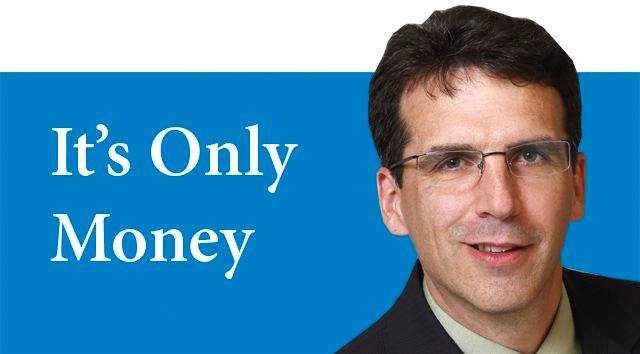Years ago we had a company program benefitting both incoming and outgoing employees involved in a company-initiated transfer.
If the incoming employee liked the outgoing employee's home, he or she could buy it. The savings of realtor fees were pocketed by the employees. Nice bonus!
But when a certain employee bought our home, we never thought she would dig up the garden and plant grass. We had put many hours into the precious raspberry and strawberry patches, not to mention the backbreaking work involved in digging up a rock-infested backyard to put down a vegetable garden.
When she began to tear out our beloved raspberry patch, I might have gotten a little whiny. However, a few hints here and there and suddenly on weekends raspberry canes from our previous home were showing up in buckets on our front porch.
That's better. Once we got through digging up rocks at our newest home, those canes were transplanted, and are still producing in our backyard here in Prince George.
The truth of the matter is, she could do whatever she wanted with her assets. Once the house had passed legally from our hands to hers, we no longer had a say in their treatment.
And then... you're dead
At the end of our lives, our long treasured stuff is about to become someone else's, legally and finally.
There is a large grey desk near the Pearly Gates. A bored-looking angel earnestly inspects your balance sheet upon arrival to ensure that it is the same one you left with a lifetime ago. "Let's see... physical assets? Zero. Debts? Zero. Okay, you can go in." You arrived naked, and you can return with just one thing in your pocket - your will.
Many avoid estate planning altogether, considering it too emotionally challenging. Discomfort hovers around discussion of death or worries about upsetting family members, creating conflict in how assets are distributed. But these factors are the exact reasons that estate planning is so important.
Avoiding decisions, or making the wrong ones because of a lack of knowledge or professional advice, increases the likelihood of disruptions to family harmony, increases the time and complexity to administer an estate and may result in higher taxes.
It's not enough to say: "I'll be dead then, who cares?" Some of the things you probably despise the most will be buttered up by avoiding the issues.
Higher taxes, spoiled grandchildren, mismanaged money, or worse - your own discomforted retirement - are all at stake.
So get after it. Whether you favour transferring your wealth during your lifetime or upon death, follow a logical process to help ensure your best intentions are realized.
After all, getting this right is what you have been working toward for your entire life.
Put your needs first
A little joke in our industry goes something like this: "My advisor says I can retire next month... but I can only live for two weeks."
When all is said and done, a world of analysis seeks to answer one simple question. Do I have enough? And, if so, what now? (That was two questions, I know.)
Before embarking on any decisions about passing wealth down during your lifetime or at death, it's crucial to first assess your finances. Take stock of all sources of income and assets and then compare that with spending needs, taking life-expectancy into consideration.
A comprehensive financial plan will be very useful in this regard. Some of the key questions specific to this area of planning include:
- Can I retire when I want to and maintain my desired lifestyle?
- What might happen to take an unexpected bite out of my wealth?
- What might my future healthcare needs and costs be?
- If I were to pass away unexpectedly, would my family be taken care of?
- How can I protect the value of my estate from the always ravenous tax monster?
Despite the important role of financial plans, most Canadians don't use them.
In the 25th Annual RBC RRSP Poll, 54 per cent of men and 60 per cent of women didn't have a financial plan. Many are leaving themselves vulnerable to giving away their wealth too early and/or running out of money.
Passing down wealth during one's lifetime
If (and only if) you've determined you have more than you need, giving some of away while living offers advantages, such as:
- Reducing the amount of probate fees that would be due upon death.
- Being alive to see the youth benefit from your gift.
- Training others in financial management.
- Reducing the taxable income of your portfolio while you are alive.
- The exquisite joy of helping to lift a loved one or stranger out of poverty, ill health and so forth.
This publication is not intended as nor does it constitute tax or legal advice. Readers should consult a qualified legal, tax or other professional advisor to implement a strategy.
Mark Ryan is an advisor with RBC Wealth Management, Dominion Securities (member CIPF) and can be reached at [email protected] or 250-960-4927.



